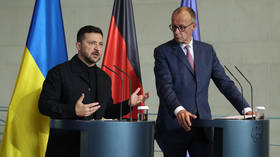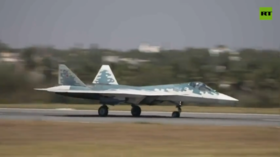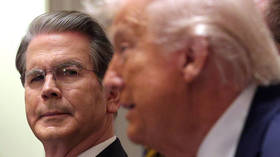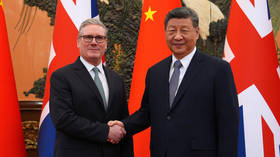Arms reduction treaty marks 17 years of non-implementation
Sunday marks the 17th anniversary of the START II treaty between the US and Russia, intended to stop the nuclear arms race. Perhaps the most significant deal between the two countries, it was never actually implemented.
One of the reasons is that, for Russia, this was a turbulent time.
“It was absolutely impossible to implement that treaty, especially for Russia, says Konstantin Sivkov from the Academy for Geopolitics. “It was signed in January 1993. At that time, the country was ruled by Boris Yeltsin’s group, who mainly cared for their personal interests and did not protect the country’s interests, but strived for greater authority with Eastern leaders. The majority of those leaders, as we now know, were often engaged in commercial deals, rather than state activity.”
START II, signed by George H.W. Bush and Boris Yeltsin, came as an addendum to the first START treaty. If the original agreement focused on limiting the number of nuclear warheads and delivery vehicles, START II banned the use of multiple warheads on a single missile.
While both countries ratified the document, neither country adhered to it. Russia officially pulled out in 2002, just one day after the US pulled out of the Anti-Ballistic Missile treaty.
“When the Americans withdrew from the ABM treaty, the foundation for START II also disappeared. It meant START II automatically lost its power,” explains Konstantin Sivkov.
Today, negotiations for a new arms reduction accord are underway, but as the geopolitical climate has dramatically changed, experts say so will the framework of the new document.
“In my view, the role of the new dialogue is different: it’s vital that the exchange between Russia and the US has begun and it will continue. The role of a new treaty will be to set a constructive interaction between the countries on the path of this dialogue, as this dialogue will comprise not only arms reduction,” believes Evgeny Myasnikov from the Research Center for Disarmament.
A new START may be on its way, but old concerns that complicated the enforcement of START II are still in play.
“In order to maintain balance, without developing an anti-missile system like the US is doing, we have to develop an offensive combat power system. We have to improve the exchange of information. Let our American colleagues fully inform us about their Anti-Missile System and then we will offer them information on our offensive armaments,” stated Russian Prime Minister Vladimir Putin recently.
But some believe that linking US missile defense to offensive arms reduction is a move that could hinder the current negotiations.
“We have always tried to keep these things separate, and the Russians have always tried to lump them together, and this has always been a source of conflict during the negotiations and I think you can see this is coming up again now,” Ivan Oelrich, Vice-president Strategic Security Programs Federation of American Scientists, told RT.
Both sides say a new START is necessary, and given past points of contention, some feel a more comprehensive approach is in order.
“It’s important that the dialogue go on, not only about strategic arms reduction, but also about the reduction of missile defense systems and counterforce capability of high-precision armaments, weapons in space and all other issues of ‘strategic stability’,” believes Evgeny Myasnikov.
Indeed, that is strategic stability that would help maintain future global stability.












